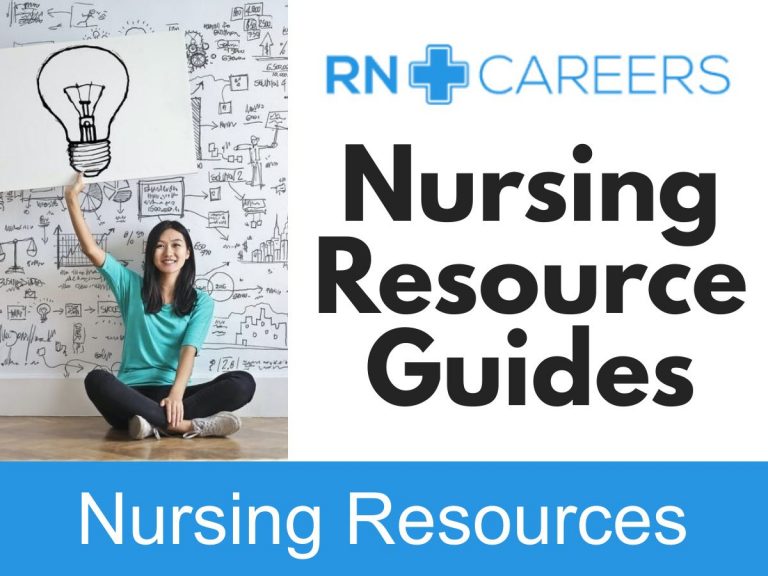Introduction to Nursing Burnout
Nursing is a noble profession that requires dedication, compassion, and hard work. Nurses play a critical role in ensuring the health and well-being of patients, but this comes at a cost. Nursing burnout is a condition that affects many nurses worldwide and can lead to physical, emotional, and mental exhaustion.
This condition can affect not only the nurse’s well-being but also the quality of care they provide to their patients. In this article, we will explore the causes, symptoms, and solutions to nursing burnout to help nurses overcome this condition and improve their overall well-being.

4 Common Causes of Nursing Burnout
Nursing burnout is a prevalent and serious issue that affects many healthcare professionals. There are several causes of nursing burnout, including excessive workload, emotional exhaustion, lack of support, and personal issues.
- Excessive workload: One of the primary causes of nursing burnout is an excessive workload. Nurses often work long hours without breaks, and are responsible for caring for multiple patients simultaneously. This can lead to physical and emotional exhaustion, and a lack of time to recharge and recover from the demands of the job.
- Emotional exhaustion: Nurses are often exposed to traumatic situations, such as patient deaths, accidents, and serious illnesses. This exposure can lead to emotional exhaustion and can be particularly challenging for nurses who lack the support and resources they need to cope with these difficult experiences.
- Lack of support: A lack of support from colleagues, supervisors, and the healthcare system can also contribute to nursing burnout. Nurses may feel isolated and unsupported, which can lead to feelings of stress, frustration, and burnout. Additionally, a lack of resources and equipment, such as personal protective equipment, can make it difficult for nurses to perform their job safely and efficiently.
- Personal issues: Personal issues can also contribute to nursing burnout. Nurses who are experiencing personal problems, such as financial difficulties, family problems, or health issues, may struggle to balance the demands of their personal lives with the demands of their job. This can lead to feelings of stress, anxiety, and burnout.
Nursing burnout is a complex issue that can be caused by a variety of factors. By understanding the causes of nursing burnout, healthcare professionals can take steps to prevent it and provide support for those who are experiencing burnout.
4 Common Symptoms of Nursing Burnout
Nursing burnout can manifest in various ways, including:
- Physical exhaustion: Nurses often work long hours and have physically demanding jobs that can leave them feeling physically exhausted. They may be required to lift and move patients, stand for long periods, and work in high-stress environments. This physical exhaustion can lead to feelings of fatigue and a lack of energy, which can make it difficult for nurses to perform their job duties effectively. Additionally, physical exhaustion can impact a nurse’s overall health, leading to increased sick days and a decreased ability to cope with work-related stress.
- Emotional exhaustion: Nurses are often exposed to traumatic situations and may witness patients suffering from serious illnesses or injuries. This exposure to emotional stress can lead to emotional exhaustion and burnout. Nurses may feel overwhelmed by their emotions and find it difficult to empathize with their patients. They may also become detached from their work and lose their sense of purpose, leading to a decreased sense of job satisfaction.
- Decreased job satisfaction: Nurses who experience burnout may feel a lack of fulfillment in their job and may start to question their career choice. They may feel underappreciated, undervalued, or that their work is not making a significant impact. Additionally, burnout can lead to feelings of cynicism and negativity, making it difficult for nurses to find joy in their work. This decreased job satisfaction can have significant impacts on the quality of care provided to patients and can lead to increased turnover rates among nursing staff.
- Depersonalization: Nurses who experience burnout may become cynical and develop negative attitudes towards their patients and coworkers. This depersonalization can lead to a decrease in empathy and a lack of concern for others. Nurses may also become detached from their work and lose their sense of purpose, leading to a decreased sense of job satisfaction. Additionally, depersonalization can impact the quality of care provided to patients and can lead to negative interactions between nurses and their colleagues.
Nursing burnout is a significant issue that can have negative impacts on nurses, patients, and healthcare organizations. Understanding the causes and symptoms of burnout is the first step in preventing and treating this issue. By prioritizing self-care, seeking support, and implementing effective policies and programs, healthcare organizations can promote the well-being of nursing staff and improve patient outcomes.
Nursing burnout can lead to physical exhaustion, emotional exhaustion, decreased job satisfaction, and depersonalization. These symptoms can have significant impacts on the quality of care provided to patients and can lead to negative outcomes for nursing staff. It is essential that nurses prioritize self-care, seek support when needed, and establish healthy work-life balance to prevent burnout and promote overall well-being.
3 Common Consequences from Nursing Burnout
- Increased errors and decreased patient safety: Nurses who are experiencing burnout may be more likely to make mistakes, leading to decreased patient safety. This can be due to a lack of focus, attention, and energy. Burned-out nurses may be more prone to errors such as medication errors, incorrect documentation, and miscommunication with other healthcare professionals. These mistakes can have serious consequences for patients, including increased risk of injury or even death.
- Increased absenteeism and turnover: Burnout can lead to increased absenteeism and turnover rates among nursing staff. Nurses may take more sick days or time off due to physical and emotional exhaustion, leading to staffing shortages and increased workload for remaining staff. This increased workload can contribute to further burnout and stress, creating a vicious cycle. Additionally, nurses who experience burnout may leave their jobs or even the nursing profession altogether, leading to increased turnover rates and difficulties in attracting and retaining qualified nursing staff.
- Organizational costs: Nursing burnout can have significant organizational costs, including decreased patient satisfaction, increased medical errors, and decreased productivity. Additionally, the costs associated with recruitment, hiring, and training new nursing staff to replace burned-out staff can be substantial. Organizations may also face costs associated with increased absenteeism, overtime pay, and decreased staff morale. Addressing nursing burnout can have significant financial benefits for healthcare organizations, including increased productivity, decreased turnover rates, and improved patient outcomes.
4 Solutions to Nursing Burnout
Nursing burnout is a prevalent and concerning issue that can lead to various negative outcomes for nurses and patients alike. Fortunately, there are several solutions that nurses can adopt to prevent and manage burnout.
- Self-care: One crucial solution to nursing burnout is self-care. Nurses must prioritize their physical, emotional, and mental well-being by getting enough sleep, eating a balanced diet, and engaging in regular physical activity. Additionally, nurses should consider taking breaks throughout their workday to recharge and manage stress.
- Support systems: Another solution is to establish support systems. Having a network of colleagues, friends, and family members who can offer emotional support and practical assistance can help nurses cope with work-related stress and prevent burnout. Nurses should also consider seeking out mentors and professional networks for additional support and guidance.
- Work-life balance: Nurses need to establish a healthy work-life balance and take breaks when needed to prevent burnout. A healthy work-life balance is also crucial to preventing nursing burnout. Nurses should strive to maintain a balance between work and personal life by setting boundaries, prioritizing self-care, and taking time off when needed. This includes avoiding working excessive overtime hours and taking adequate time off to recharge and spend time with loved ones.
- Seek professional help: If nurses are experiencing severe symptoms of burnout, they may need to seek professional help from a counselor or therapist. Seeking professional help is an option for nurses experiencing severe symptoms of burnout. Seeking the help of a licensed counselor or therapist can provide additional support and resources to help manage stress and prevent burnout.
Nursing burnout is a serious issue that requires proactive solutions. Nurses must prioritize self-care, establish support systems, maintain a healthy work-life balance, and seek professional help when necessary to prevent and manage burnout effectively.
Prevent Nursing Burnout Before it Starts
Preventing and treating nursing burnout requires a multi-faceted approach. Organizations can implement policies and programs aimed at reducing burnout, including providing resources for self-care, promoting work-life balance, and offering opportunities for professional development and career advancement.
Additionally, healthcare professionals can take steps to prevent burnout by practicing self-care, seeking support when needed, and setting healthy boundaries. Treatment for burnout may include therapy, counseling, or other forms of mental health support.
One effective way to treat nursing burnout is to address it early on. Nurses who are experiencing symptoms of burnout should seek help as soon as possible. They should speak to their supervisors or colleagues about their concerns, and consider seeking professional help from a therapist or counselor. In addition, nurses can participate in mindfulness practices such as meditation or yoga to help reduce stress and promote mental well-being.
Another important aspect of preventing and treating nursing burnout is to address the underlying causes. This may include improving staffing levels, reducing workloads, and providing adequate resources and support for nurses. Nurses should also be encouraged to participate in professional development and training opportunities to help them build their skills and knowledge, and feel more confident in their roles. By addressing these underlying causes, healthcare organizations can create a positive and supportive work environment that promotes the well-being of their nursing staff.
FAQs for Nursing Burnout
- Can nursing burnout lead to depression?
Yes, nursing burnout can lead to depression, anxiety, and other mental health problems if left untreated.
- How can nurses prevent burnout?
Nurses can prevent burnout by prioritizing self-care, establishing a healthy work-life balance, and seeking support from colleagues, friends, and family.
- What are some warning signs of nursing burnout?
Some warning signs of nursing burnout include physical exhaustion, emotional exhaustion, decreased job satisfaction, and depersonalization.
Where to Find Help for Nursing Burnout
- Substance Abuse and Mental Health Services Administration (SAMHSA) – https://www.samhsa.gov/find-help/national-helpline
- National Alliance on Mental Illness (NAMI) – https://www.nami.org/Find-Support/NAMI-HelpLine
- Crisis Text Line – https://www.crisistextline.org/
- Mental Health America (MHA) – https://mhanational.org/get-involved/contact-us
- The Recovery Village – https://www.therecoveryvillage.com/resources/mental-health/
Conclusion
Nursing burnout is a real problem that affects many nurses worldwide. It can lead to physical, emotional, and mental exhaustion, affecting not only the nurse’s well-being but also the quality of care they provide to their patients.
By understanding the causes, symptoms, and solutions to nursing burnout, nurses can take steps to prevent and overcome this condition. Prioritizing self-care, establishing a healthy work-life balance, and seeking support from colleagues, friends, and family can help nurses cope with work-related stress and improve their overall well-being.
- Looking for help for other mental health issues facing nurses?
- Find more resources
- About the Author
- Latest Posts

Lauren Webber is a former HR manager and lover of psychology who now runs Dainty Mom among her other pursuits. Her interests range from the corporate world to health and self-care to home improvement and parenting.







